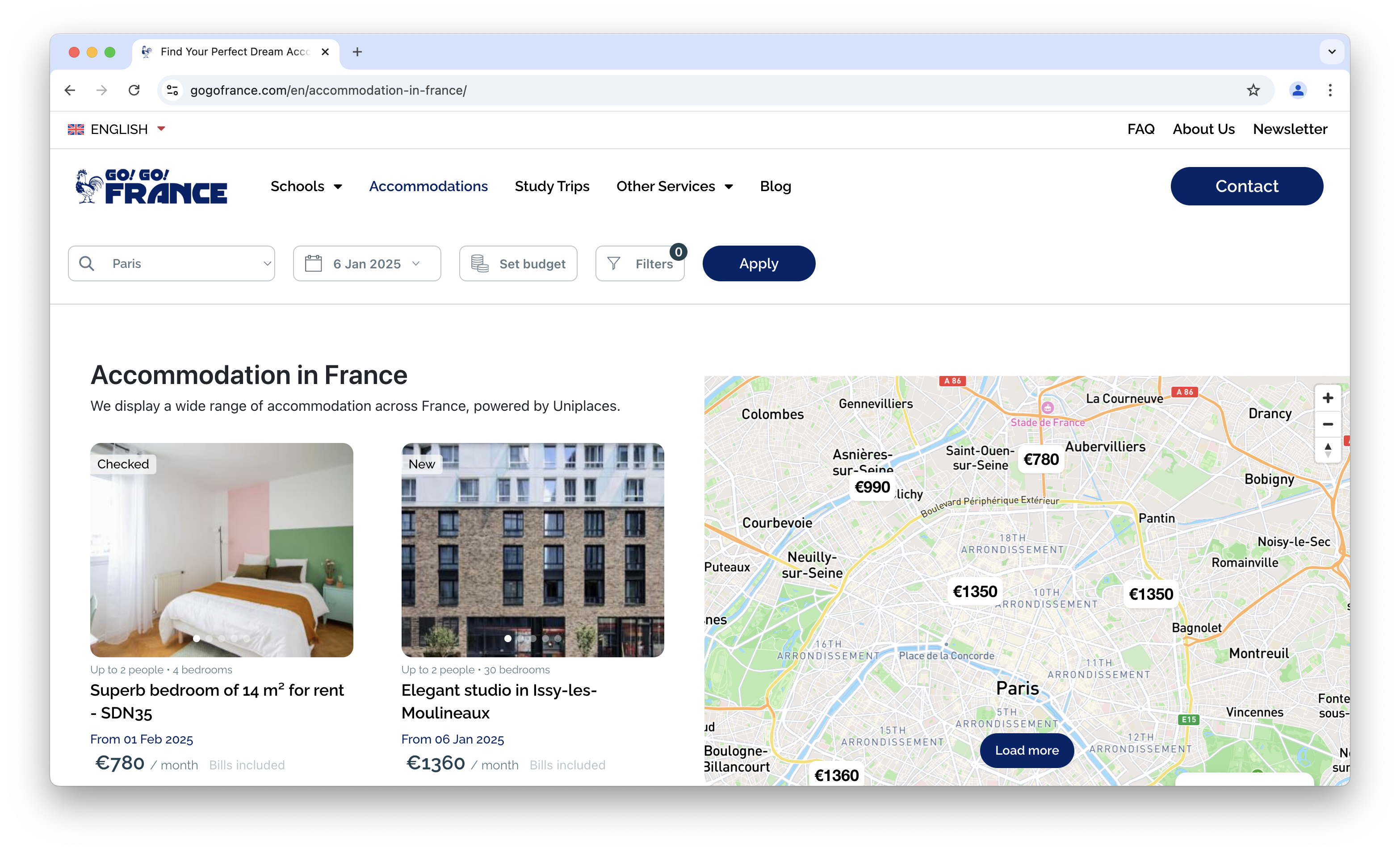Accessibility in France has improved significantly, making it easier for international students and travelers with disabilities to study, live, and explore the country.
In this guide, we provide practical insights into accessibility across transportation, public spaces, and institutions to help you plan your future stay in France with confidence.
Accessibility in France
France’s commitment to accessibility is anchored by the Loi Handicap (Disability Law) of 2005. This legislation requires public spaces—including schools, universities, transportation systems, and tourist sites—to be accessible to people with disabilities.
Accessibility in public transportation
While accessibility in public transportation has improved notably in recent years, it can still vary depending on the region and mode of transport.
Trains
The French national railway company, SNCF, has invested heavily in making train travel more accessible. Many major train stations now feature elevators, ramps, and tactile paving for visually impaired travelers.
For wheelchair users or those requiring assistance, SNCF offers the Accès Plus service, which provides help with boarding, transfers, and disembarking. This service should be booked in advance, either by phone or online, especially when traveling on high-speed TGV trains.

City trains, buses, trams, and subway
Many cities have modernized their public transport fleets with low-floor buses and accessible trams equipped with ramps and wheelchair spaces. Bus drivers are typically helpful and attentive to passengers needing assistance. When boarding, position yourself near the front and signal the driver for help if needed.
However, some areas remain underserved, and modernization can be challenging—particularly in historic cities like Paris where many installations are old or protected as historic sites. For example, the Parisian subway, despite its extensive network, is often less accessible due to many stations lacking elevators and featuring numerous stairs.
In contrast, the RER trains are more accessible, especially lines A and B, which connect to major airports (Charles de Gaulle and Orly) and main train stations. If you have mobility needs in Paris, consider using buses, trams, or RER trains.
Taxis
Wheelchair-accessible taxis are available in larger French cities, with companies such as Taxis G7 in Paris offering adapted vehicles with ramps.
You can also use services like Uber, available in nearly all French cities, with Uber WAV (wheelchair-accessible vehicle) options in larger cities. These vehicles accommodate wheelchairs and other mobility devices. Every Uber WAV driver completes a certification course to assist with entering and exiting the vehicle safely.
Accessibility in everyday services
Supermarkets, city shops, and shopping malls
In larger French cities, shopping centers and supermarkets generally provide good accessibility. Major chains like Carrefour and Auchan typically feature wide aisles, ramps, automatic doors, dedicated checkout counters for people with disabilities, accessible restrooms, and reserved parking spaces.
Many malls also offer elevators and spacious layouts to accommodate mobility devices.
However, smaller shops or stores located in older buildings—especially in historic districts—may have limited accessibility due to narrow entrances or stairs.

Restaurants and cafés
While many modern restaurants and chains offer accessible entrances and restrooms, smaller traditional bistros and older buildings may have steps or tight spaces.
Cinemas, museums, and other cultural venues
France’s cultural scene has made important strides in accessibility. Modern cinemas such as UGC and Pathé are usually equipped with ramps, elevators, designated wheelchair spaces, and hearing assistance systems like hearing loops and audio description services.
Museums and theaters in major cities have also improved facilities to welcome visitors with disabilities, including accessible entrances, tactile exhibits, and tailored guided tours.
Language schools and universities
Many language schools have made significant improvements to welcome students with disabilities, from improving facility access to classroom arrangements and adapted teaching materials.
Find out more about studying French with a disability here: https://gogofrance.com/en/blog/students-with-disabilities-learn-french/
Accessible student housing options in France
Finding accessible accommodation is essential for international students with disabilities.
Here are some options:
- School-managed options: Many CROUS university residences offer accessible rooms with features such as wider doorways and adapted bathrooms, conveniently located near campuses and public transport. Our partner language schools also connect students with local accommodation providers suited to their needs.
- Private and shared options: Accessible private and shared housing is increasingly available, especially in major cities. Some platforms focus on inclusive living communities. At Go! Go! France, we partner with Uniplaces and HousingAnywhere, where students can search specifically for accessible housing tailored to their requirements.

Planning your future trip to France
For more detailed information on accessibility, visit the official tourism website of your destination city or explore sites like Jaccede, which provides user-generated reviews on the accessibility of various venues across France.
If you’re interested in learning more about traveling and studying in France, be sure to check our blog.





